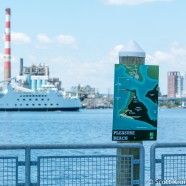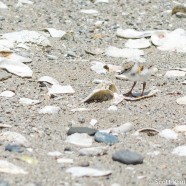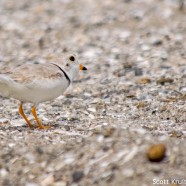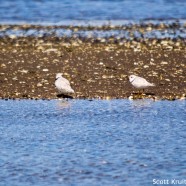Pleasure Beach Training
The Roger Tory Peterson Institute of Natural History and Audubon Connecticut teamed up to instruct and ready our new WildLife Guards Crew Leaders, Alivia Sheffield and Emily Allen, from June 22 through June 26 in preparation for our WildLife Guards (WLG) program, which trains, mentors, and employs ten local high schools students. This is RTPI’s first year participating in the very successful education and outreach program. Teaching the teachers is a very important task, especially when they and their students will be reaching tens of thousands of people this summer! The students and...
Read MoreCelebrate Wild America
Here’s another setting sun to end another busy week. We will be outdoors all weekend working to educate the public on all sorts of natural neighbors. What better way to celebrate the birth of America than going outside to spend this weekend with Wild America? Be sure to take the kids, too!
Read MorePiping Plover Hatchlings & WildLife Guards
A Piping Plover pair at Bridgeport, Connecticut’s Pleasure Beach became new parents to four tiny hatchlings either very late on the night of Thursday, June 18 or early in the morning of Friday, June 19. Our work in the Audubon Alliance for Coastal Waterbirds makes them our responsibility. These birds are the City’s one pair for the 2015 season, and with Pleasure Beach being open to the public for a second year after being off limits for nearly 20 years and overrun with predators. I visited them with Audubon Connecticut’s Important Bird Area Program Coordinator Corrie...
Read MorePiping Plovers in the Sand
This warm week has jump started breeding as Piping Plover pairs are getting much more focused on nesting, making scrapes and exhibiting soon to be parents behavior on some Connecticut beaches. Our Audubon Alliance for Coastal Waterbirds crew is wrapping up helping the Connecticut Department of Energy and Environmental Protection in placing string/psychological fencing and signage on major beaches and busy breeding areas. We will soon be assisting them in placing exclosures over Piping Plover nests to protect the precious eggs from predators on the ground (cats, raccoons, foxes and coyotes)...
Read MoreSlow Piping Plovers
This year has been rather cold – talk about news you did not need to know, huh? Even though temperatures have been much closer to average in recent days there is still not a lot of action on the breeding birds front, with these distant looks at Piping Plovers feeding in the middle of a marsh on a chilly, windy morning yesterday showing they are not nesting yet. Nights with lows near freezing will keep eggs at bay for the moment, but we at the Audubon Alliance for Coastal Waterbirds continue to be extremely busy putting up fencing and signage, reporting migrants, recording pairs and...
Read More








